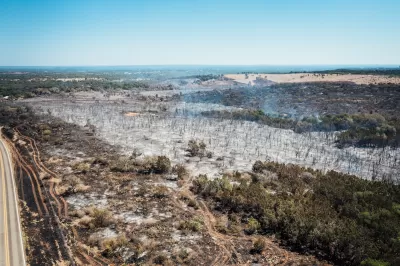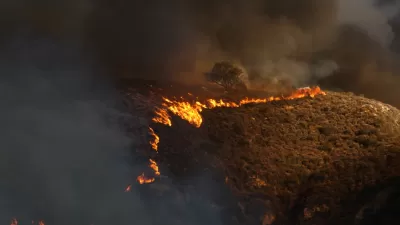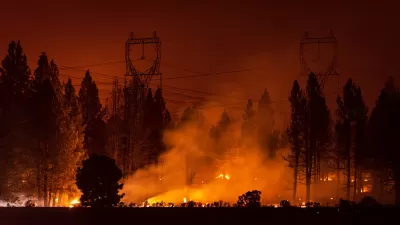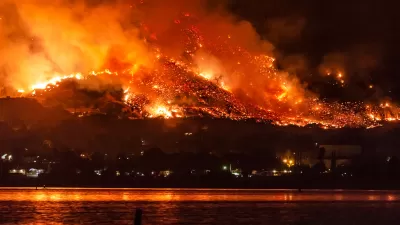In many places, climate change is creating ideal conditions for fires to grow larger and more destructive.

Experts say fires like the Smokehouse Creek fire that burned across 850,000 acres in Texas last month are becoming increasingly common due to climate change, reports Dinah Voyles Pulver in USA Today.
“Such huge fires, whether ignited by natural or human causes, are fanned by factors that include the expansion of suburbia into wildlands, land management and firefighting challenges and climate change,” according to researchers from the University Corporation for Atmospheric Research.
Over the past two decades, the average number of wildfires per year dropped, but the number of acres burned grew by almost 50 percent. Climate change can exacerbate optimal wildfire conditions and help fires spread farther, faster. “A 2016 study, led by John Abatzoglou, concluded human-caused climate change ‘doubled the cumulative forest fire area since 1984’ in the western U.S.”
Experts point out that fires have useful natural functions — “The problem arises when houses are in the way.”
FULL STORY: Climate change helping drive an increase in large wildfires in the US

Planetizen Federal Action Tracker
A weekly monitor of how Trump’s orders and actions are impacting planners and planning in America.

Maui's Vacation Rental Debate Turns Ugly
Verbal attacks, misinformation campaigns and fistfights plague a high-stakes debate to convert thousands of vacation rentals into long-term housing.

Cuomo Is the Candidate of Both NIMBYs and Developers. What Gives?
In the New York City mayoral race, odd bedfellows align to preserve the housing status quo.

The Subversive Car-Free Guide to Trump's Great American Road Trip
Car-free ways to access Chicagoland’s best tourist attractions.

San Antonio and Austin are Fusing Into one Massive Megaregion
The region spanning the two central Texas cities is growing fast, posing challenges for local infrastructure and water supplies.

Charlottesville Temporarily Has No Zoning Code
A judge ordered the Virginia city to throw out its newly revised zoning code, leaving permitting for new development in legal limbo.
Urban Design for Planners 1: Software Tools
This six-course series explores essential urban design concepts using open source software and equips planners with the tools they need to participate fully in the urban design process.
Planning for Universal Design
Learn the tools for implementing Universal Design in planning regulations.
Heyer Gruel & Associates PA
JM Goldson LLC
Custer County Colorado
City of Camden Redevelopment Agency
City of Astoria
Transportation Research & Education Center (TREC) at Portland State University
Jefferson Parish Government
Camden Redevelopment Agency
City of Claremont





























